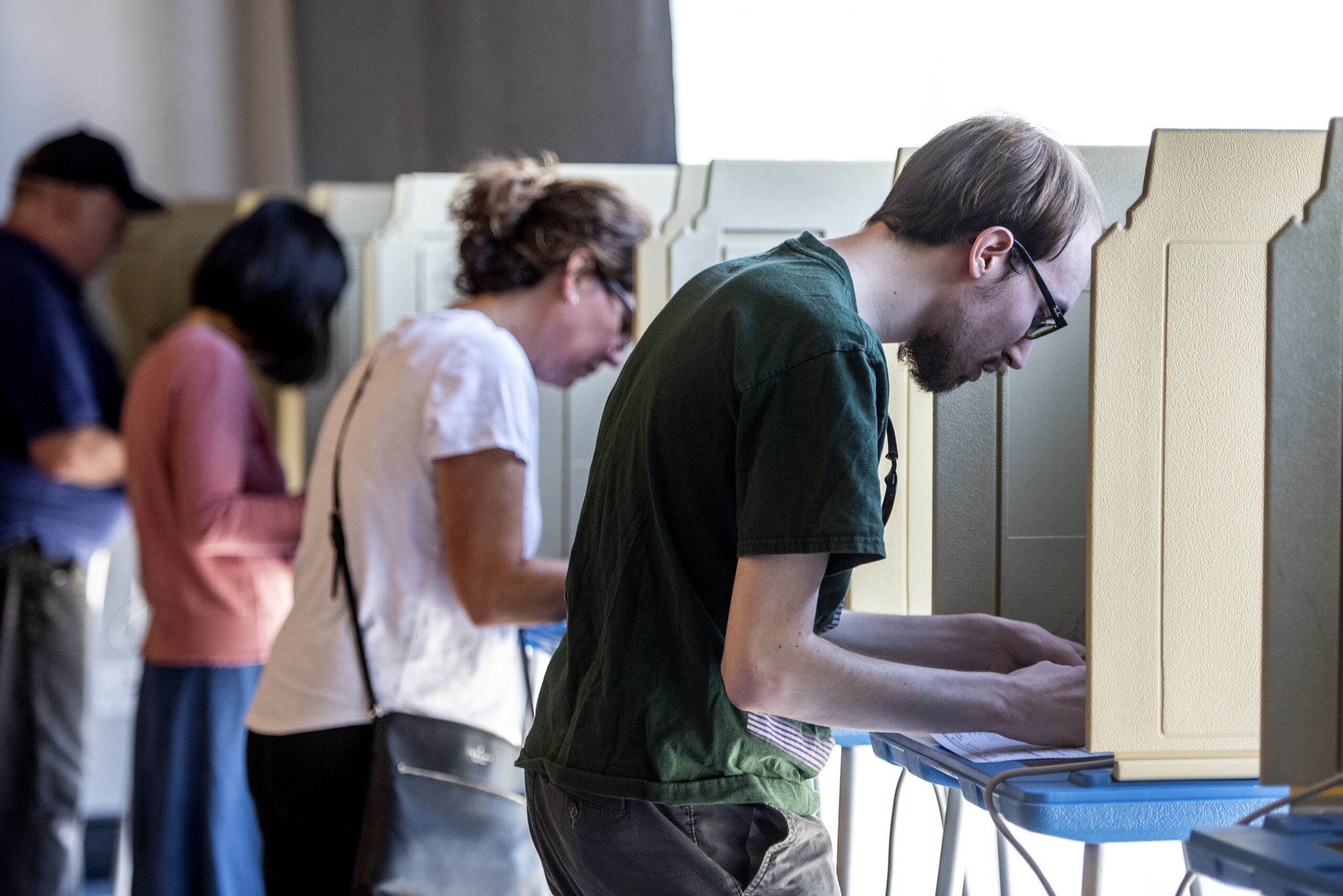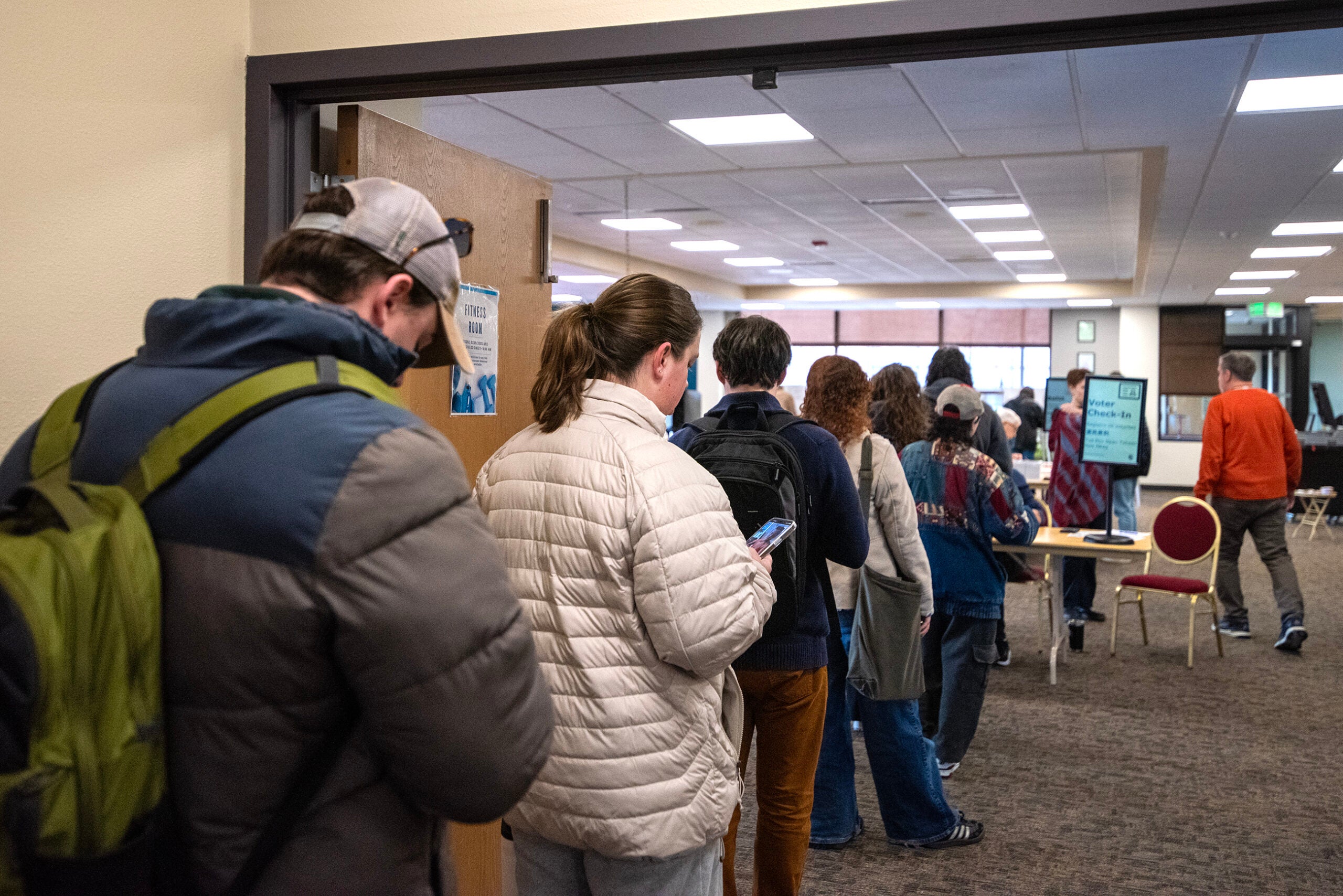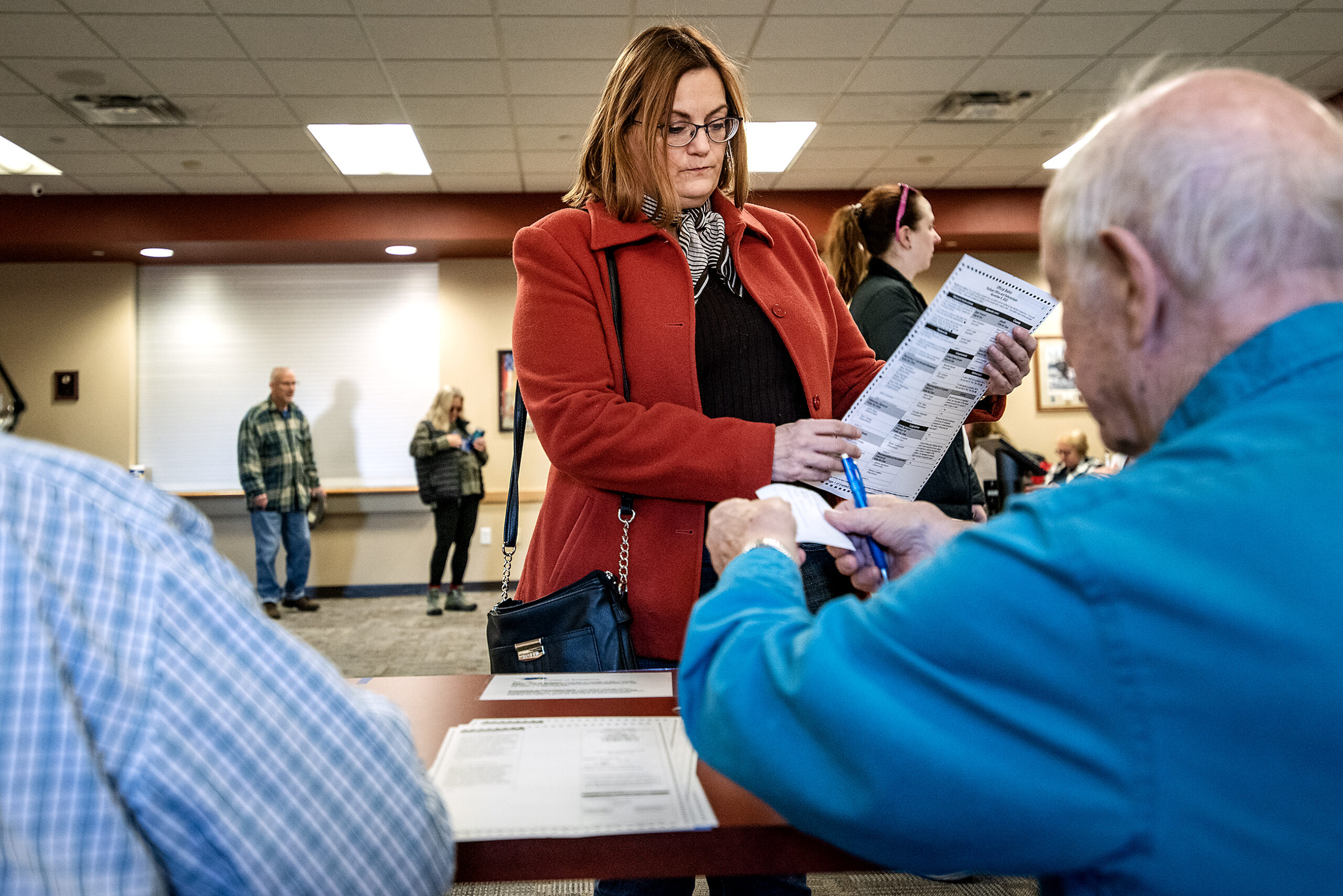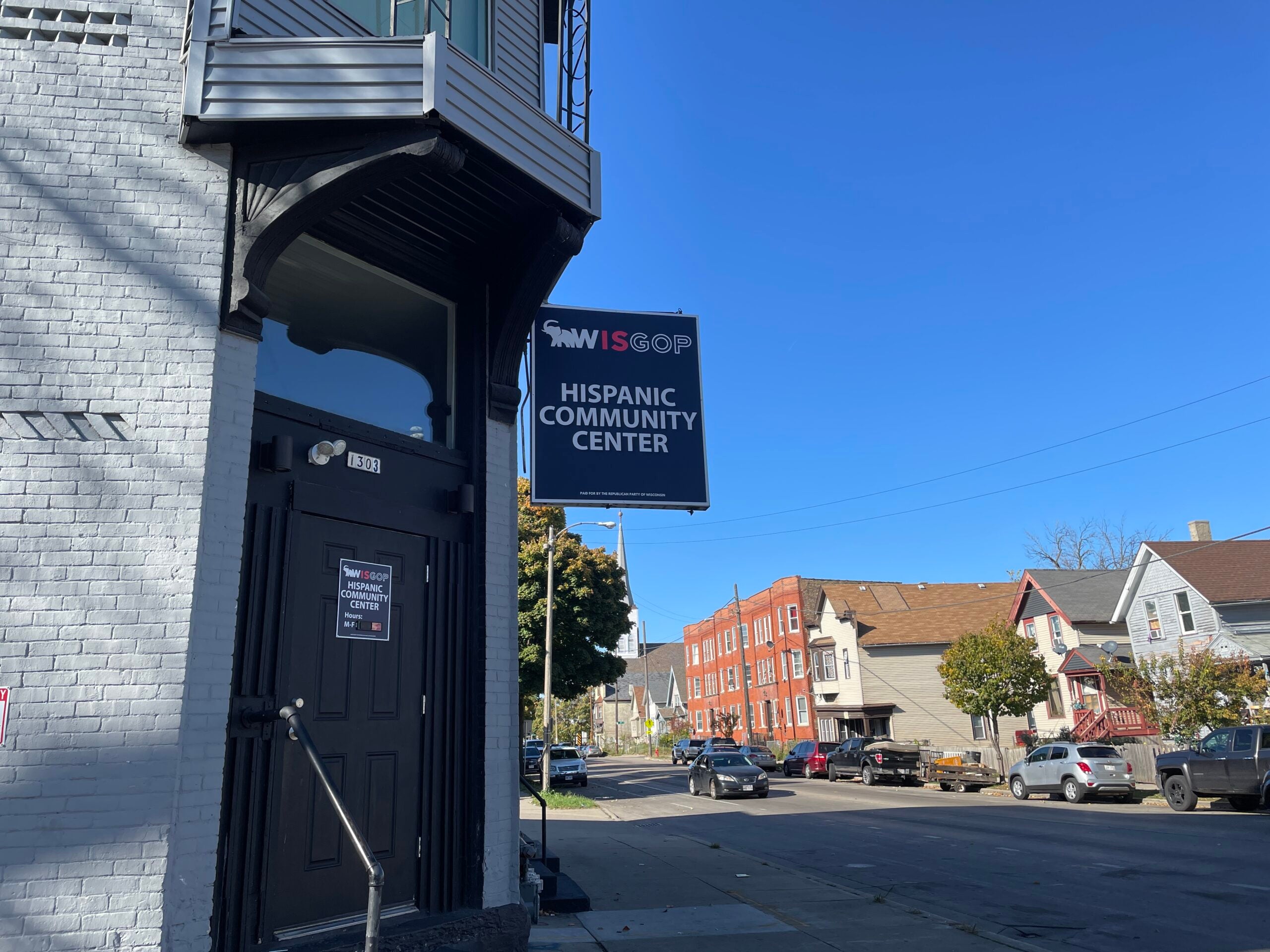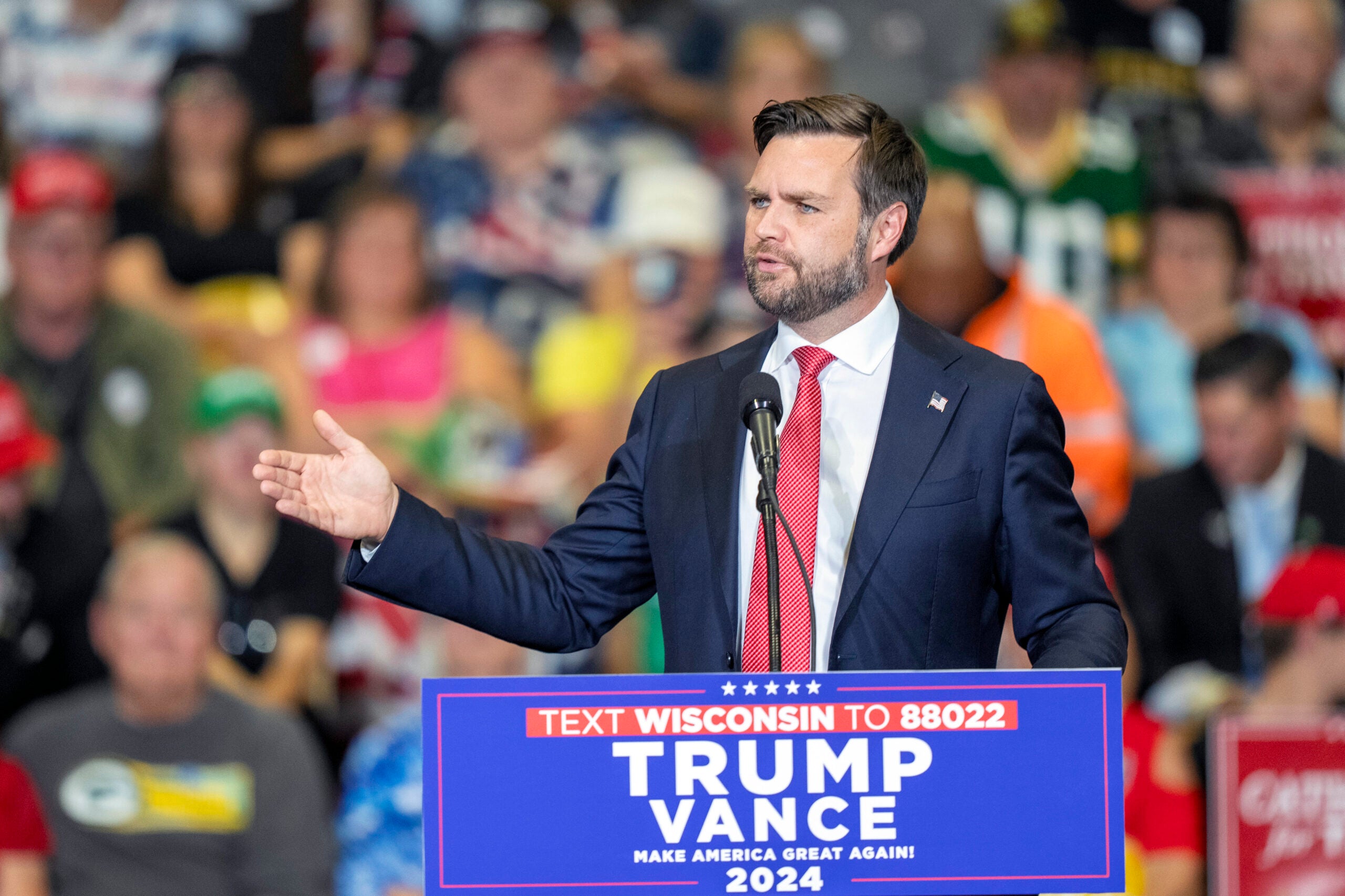Volunteers worked fast to set up metal folding chairs on a recent evening at the Southminster Presbyterian Church in Waukesha, where people filled the rows of seats almost as quickly as they were added.
Ceiling fans spun overhead, but as the crowd grew larger, the room got noticeably warmer. Through the cacophony, the church’s PA system crackled to life with an announcement: the monthly meeting of the Waukesha County Democratic Party was about to start.
There was a time in the not-too-distant past when local Democrats wouldn’t have needed this much space, but in deep red Waukesha County, their numbers have been on the rise. Over the past eight years they’ve chipped away at the GOP advantage in a county that’s still foundational to Republican power.
Stay informed on the latest news
Sign up for WPR’s email newsletter.
A guest speaker at the meeting, Democratic Lt. Gov. Sara Rodriguez, started her political career in Waukesha County by flipping a Brookfield state Assembly seat in 2020. She ran for statewide office two years later.
“I have been bragging about you at every stop,” Rodriguez told the group. “I keep saying that Waukesha has standing room only, literally, in their meeting.”
Rodriguez shared what is — among suburban Democrats — a well-worn mantra. This is a Republican county, she said, and they know they won’t win it this year.
“But you know what?” she told the crowd. “If we can get all of these suburban women who I know are mad out to vote, we are going to deliver the state of Wisconsin.”
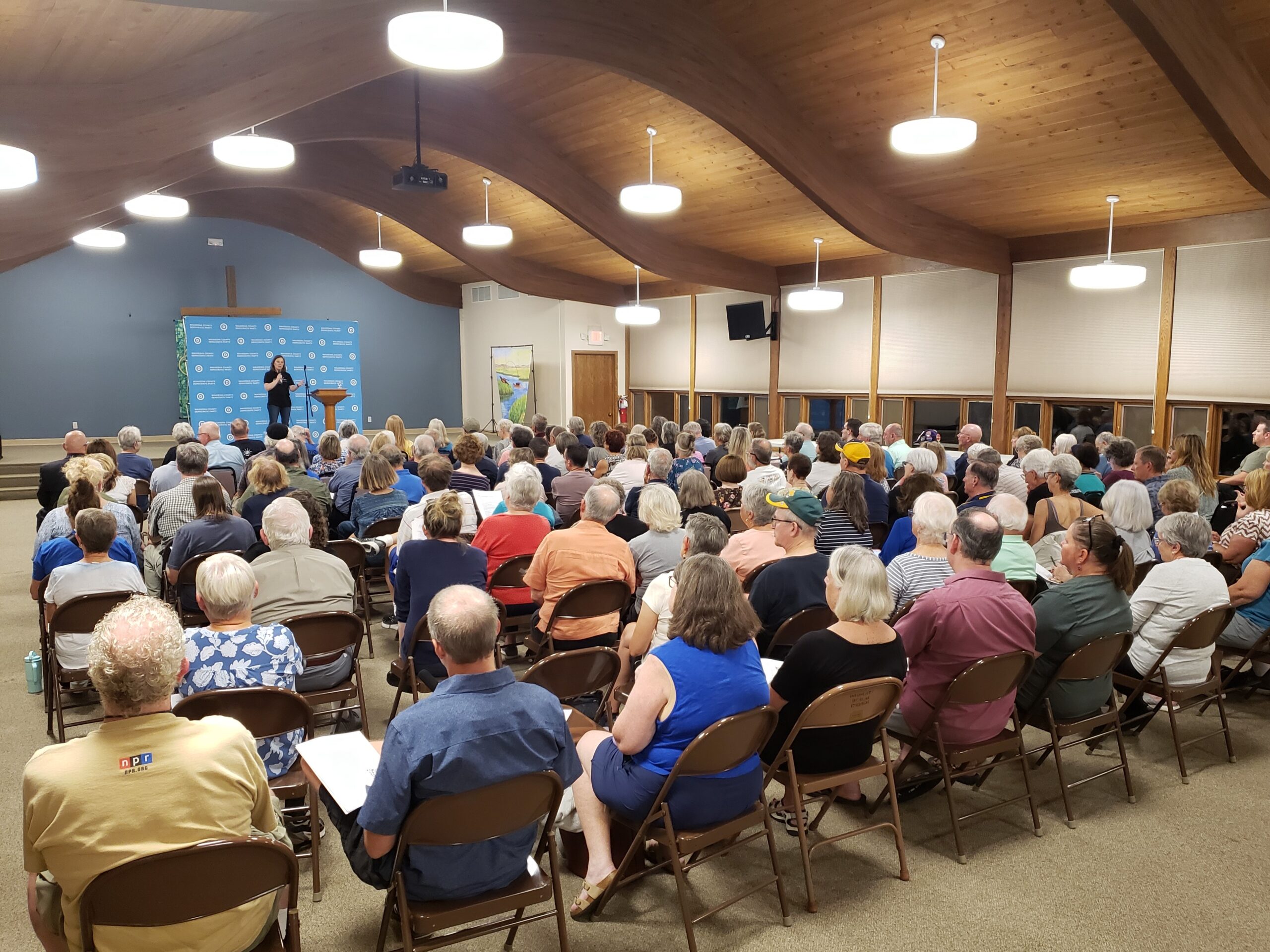
In a state as politically divided as Wisconsin, where four of the last six presidential races have been decided by less than one percentage point, any number of voting blocks could arguably decide the next election. But the influence of the suburbs has grown, if for no other reason than voters there have shown a recent willingness to change their minds.
Of all the suburban counties, Waukesha is the biggest political prize. While often packaged with Ozaukee and Washington as a block of WOW counties, Waukesha is by far the largest of the three, and the third most populous county in the state.
For years, Republicans could run up their margins there en route to statewide victories, but over the past decade, that formula has changed.
“Waukesha County is growing,” said Matt Mareno, the chair of the Waukesha County Democratic Party. “If we invest in this community, we block the Republicans from ever having a statewide victory in Wisconsin, because we’re undermining the heartbeat of the Republican Party in Wisconsin.”
The suburbs once delivered Wisconsin for Republicans
It might seem counterintuitive to think about Waukesha County in such grand terms for Democrats, whose best case scenario there might be to crack 40 percent of the vote in November.
But it’s not just how people are voting now that’s significant. It’s how much the county has changed.
Former Assembly Speaker Scott Jensen represented part of Waukesha County as a Republican state representative from Brookfield from 1992 to 2006.
“I frequently got as much as 78 percent of the vote when I represented this area,” Jensen said. “Today, that same territory now leans slightly towards the Democrats.”
Waukesha County is where former Gov. Scott Walker celebrated his 2010 victory that ushered in a new era of GOP dominance in state government. It’s also where he launched his short-lived campaign for president in 2015.
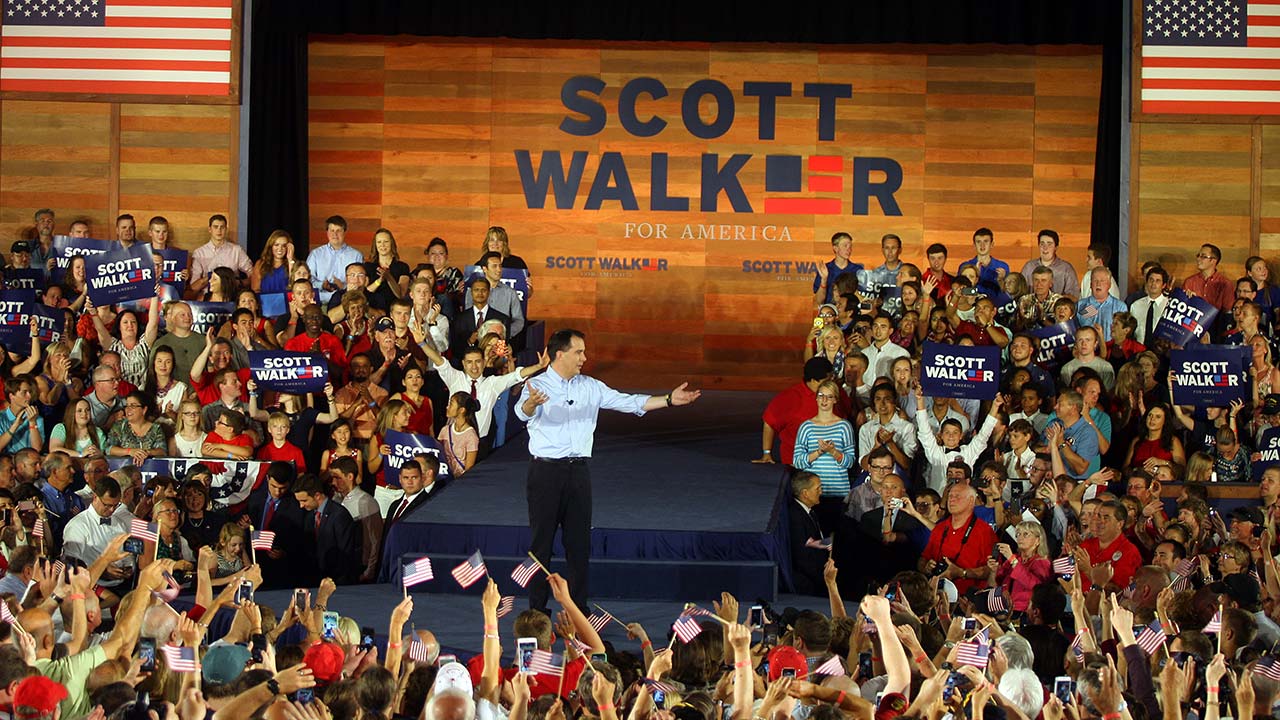
Walker received about 72 percent of the vote in Waukesha County in 2010, 72 percent again in his 2012 recall victory and about 73 percent of the vote in his 2014 reelection. But in 2018, Walker’s support there dropped to 66 percent, and he lost statewide to Democrat Tony Evers.
“Republican declines there have really proved costly,” said J. Miles Coleman, an associate editor of Sabato’s Crystal Ball at the University of Virginia Center for Politics. Coleman thinks Waukesha County’s shift was “the biggest reason Scott Walker lost.”
Other suburbs have seen a similar shift, both in Wisconsin and nationally. The same thing has happened in the suburbs of Detroit and Minneapolis, Coleman said. And Republican numbers in Ozaukee County have dropped so much that Coleman thinks it might turn blue this decade.
There are, generally speaking, two schools of thought on why this is happening. One is that this is a typical political life cycle of suburbs. In Illinois, for example, Chicago’s “collar counties” changed over time from reliably Republican to Democratic as their demographics changed.
The other theory is that the change is being driven by former Republican President Donald Trump, whose personality and politics have turned off traditional GOP voters.
The numbers give some credence to the Trump theory. Republicans would regularly win Waukesha County with close to 66 percent of the vote in races for president before Trump’s rise to power. In 2016 and 2020, Trump received just 60 percent.
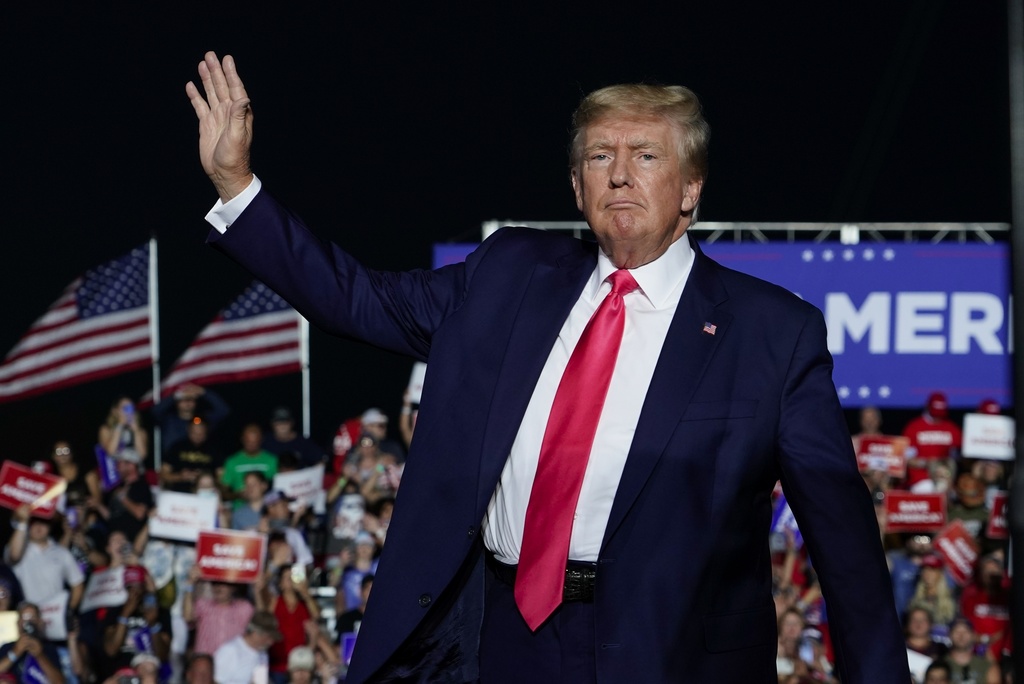
Put another way, in raw numbers, 2012 Republican presidential nominee Mitt Romney ran up the score in Waukesha County, winning it by more than 84,000 votes even as he lost the rest of the state. By 2020, Trump’s Waukesha County margin was about 56,000 votes, a 28,000 vote swing away from the GOP that was larger than the margin by which Trump lost the election.
Wisconsin remains a close state because the GOP has increased its numbers in rural counties as its suburban vote has slipped. In Jensen’s view, the Republican and Democratic parties have switched their political bases since Trump came on the scene.
“The working class has moved to the Republican Party, and the high-income, high-educated voters have moved to the Democratic Party,” Jensen said.
But Jensen said he’s also seen a change in tactics from Democrats in his area about a decade ago, when they began going door-to-door more often and putting up yard signs.
“My neighborhood, which only had Republican signs before, now has probably more Democratic signs than Republican signs,” Jensen said. “Before, they would just give up and try to rack up the numbers in Madison and Milwaukee. Now they realize they can win some of these areas, and they have been doing that.”
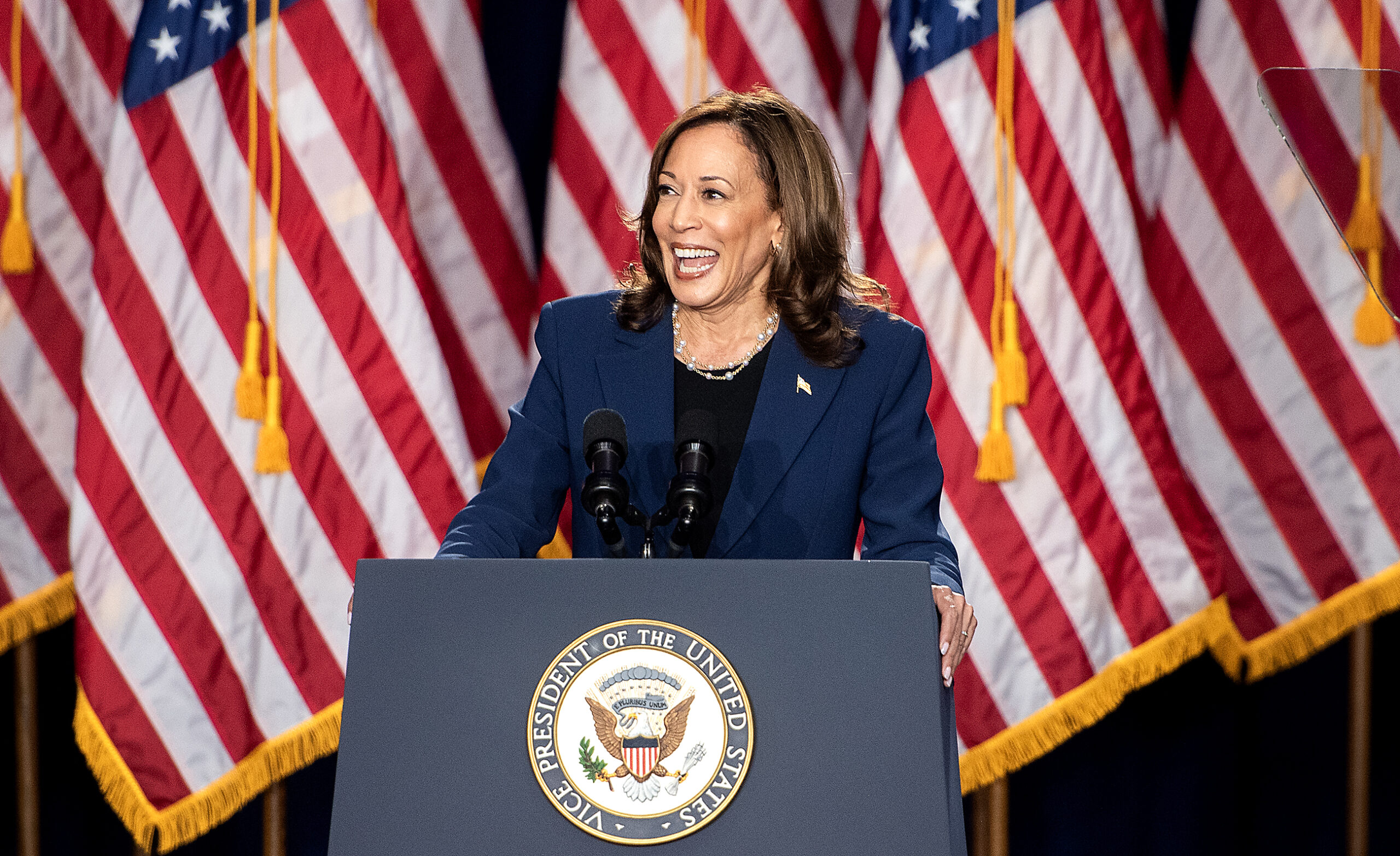
A mix of voters
This wouldn’t be possible without the mix of voters who live in the suburbs, and that was on display at the city of Waukesha’s recent Oktoberfest celebration.
This was a decidedly non-political event. People showed up for the beer, brats, pretzels and live music. Lederhosen were far more common in the crowd than shirts or hats promoting Trump or Vice President Kamala Harris.
The city of Waukesha is more Democratic than the county, but it still leans Republican, and several in the crowd said they plan to vote for Trump in November.
“I just like where we were four years ago,” said Ross Vanevenhoven of Brookfield, a Trump supporter. “I think sometimes he can get in his own way, but I look at it more as the policies are what’s important. I could really care less what he says on a day to day basis. It’s what he actually does behind the scenes.”
Jay Wilkes, a conservative voter from Waukesha, said his big issues include inflation and border security. He’s voting for Trump, too.
“When he was in office before, I thought he did a good job,” Wilkes said. “And I think he can do a good job again.”
As they sat in the park’s amphitheater under the night sky, Anne Marie Vassalotti and Randy Johanning, both of Waukesha, said they like the mix of views in the suburbs. But they said they typically keep their political views to themselves.
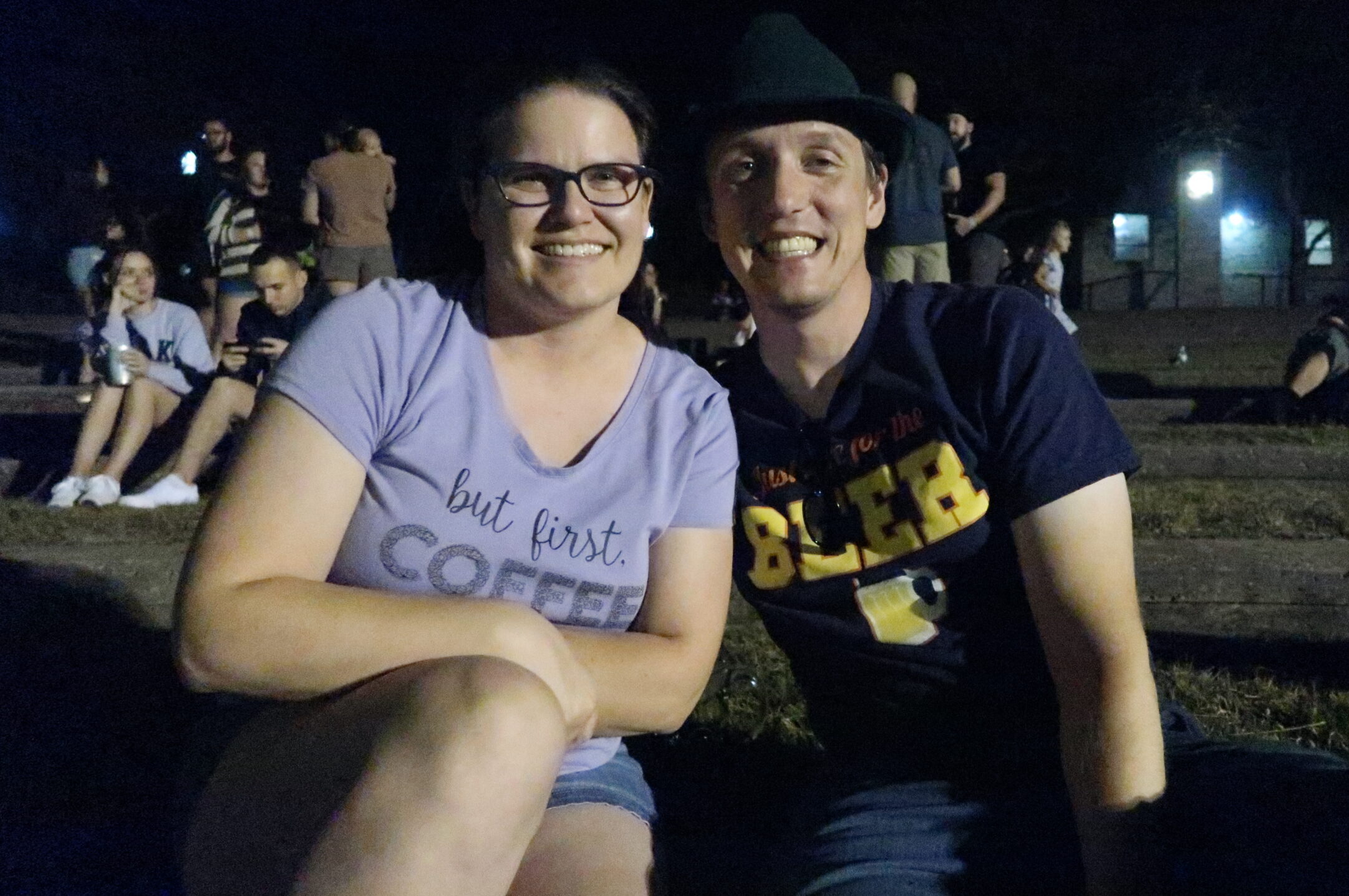
“It turns people into enemies, unfortunately,” said Johanning, who described himself as undecided in the race for president. “I listen. That’s my thing.”
Vassalotti, who plans to vote for Harris, said this remains a heavily Republican area but thinks some in the GOP may vote against Trump strictly because they don’t like him personally.
“And it may not have changed their true political beliefs at heart,” she said. “But at this particular election, they may choose to vote differently.”
Christine Jolitz, a Republican voter from the nearby Milwaukee County suburb of West Allis, said it’s frustrating when she hears people say they won’t vote for Trump because of the way he acts. She’s hoping Republicans come around to his side.
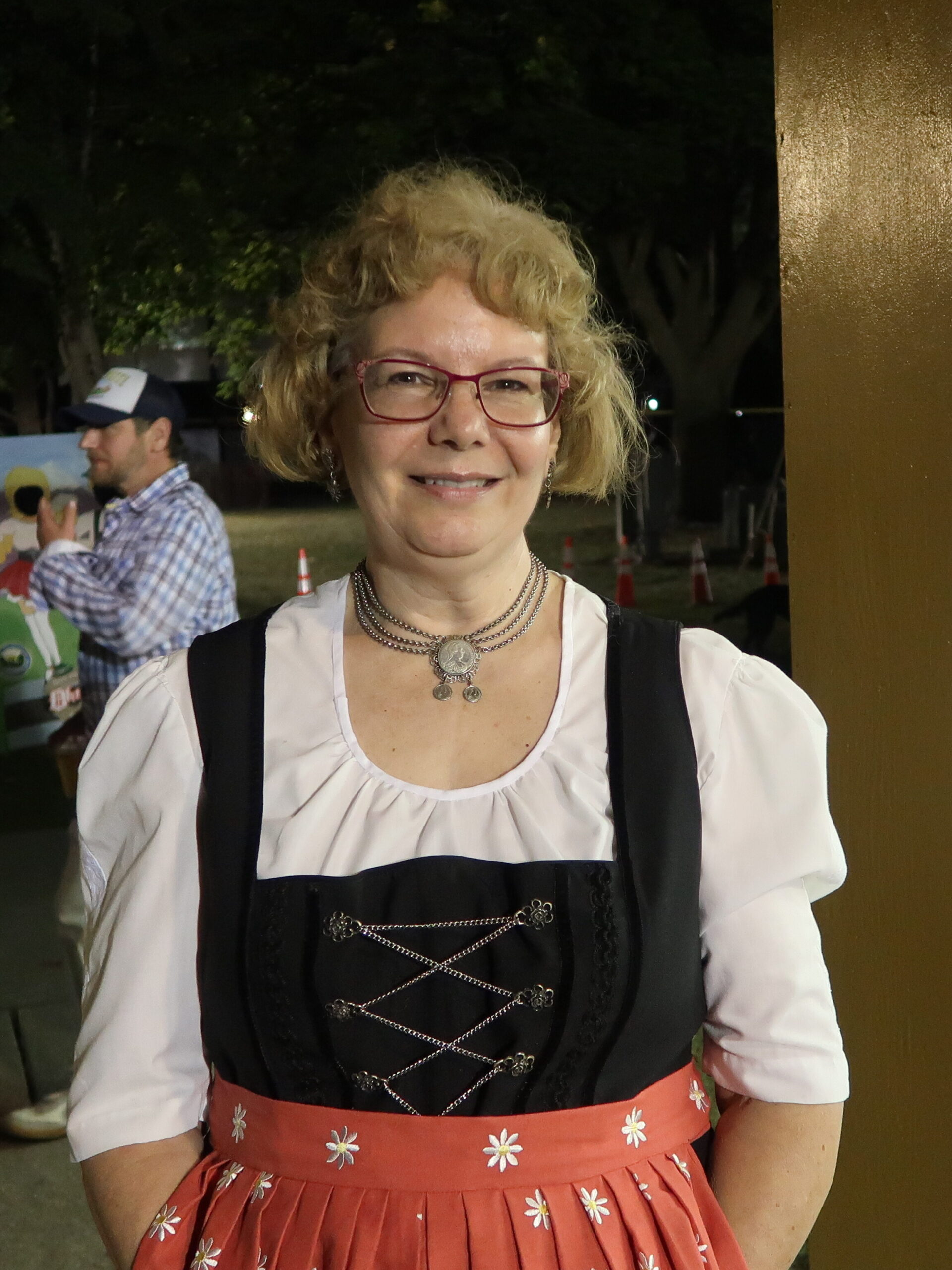
“I mean, when we voted for him eight years ago, we all knew what we were getting,” Jolitz said. “He was no altar boy. We knew that. But we also felt strongly that he was going to turn this economy around, and he did.”
2024 and beyond
Voters have had overall negative views of the economy this year, which has been a political boon for Trump.
The biggest political winner this year for Democrats has been their support for abortion rights, particularly among suburban women.
Chris Bethe, from Pewaukee, was in the crowd at the recent Waukesha County Democratic Party meeting. She listed abortion as one of her top issues, along with the environment and democracy.
Bethe remembers feeling isolated when she moved to the suburbs from Milwaukee 20 years ago.
“We felt like we were the only Democrats in the whole county,” she said. “Most of these people sitting here believed that same thing. Until you start going to meetings and talking to people, and then you realize you’re not alone.”
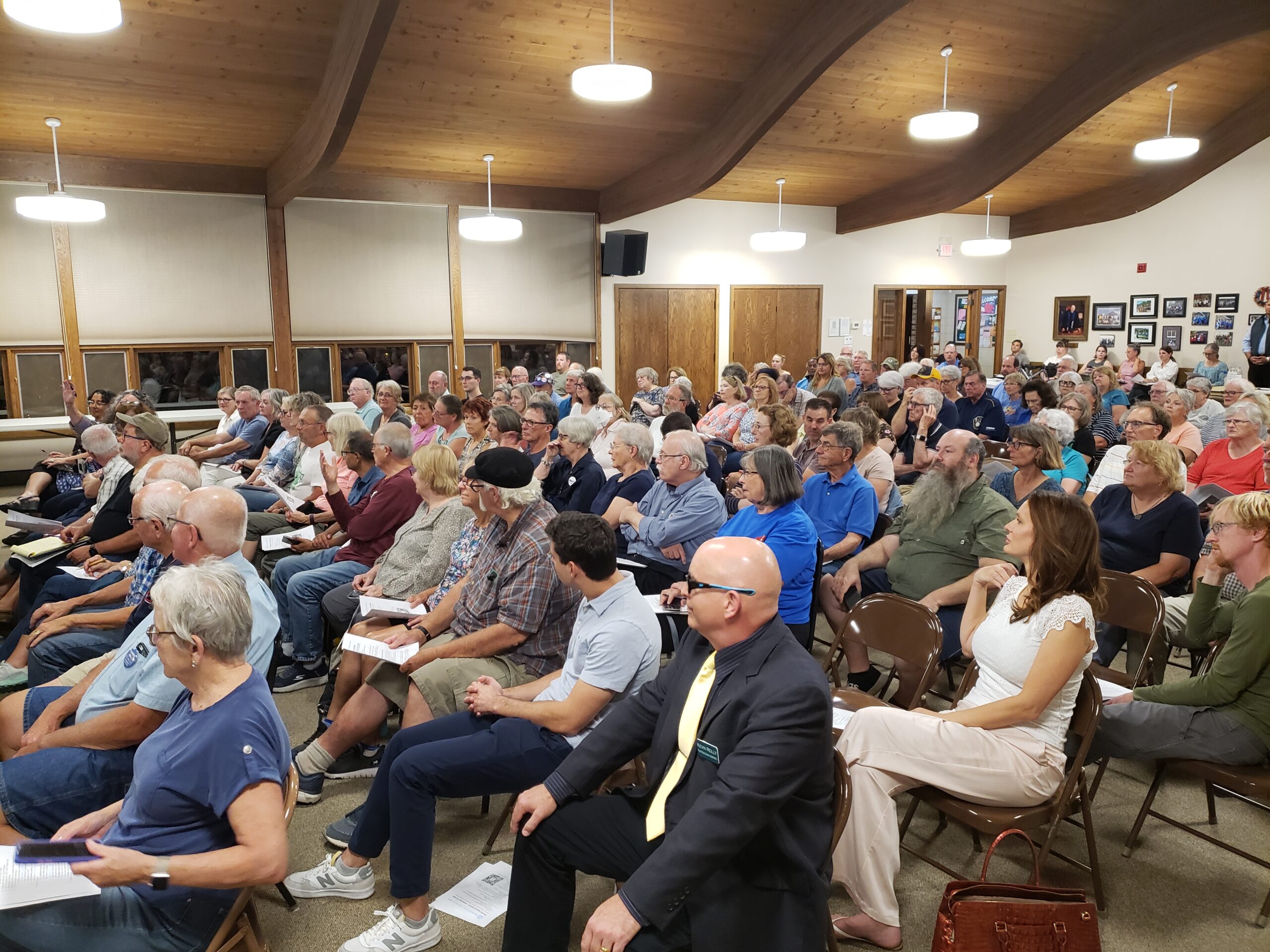
Jill Seebruch from New Berlin said women’s rights are her top priority. She’s focused on how to talk about that issue, and others, in ways that connect with her Republican neighbors.
“If we want to keep rehashing what Trump is saying, fine, grab your Democratic Party friend and talk about it,” she said. “But I think that doesn’t win an election. I think you have to get out there and do the canvassing and talk to the other people who need to be swayed.”
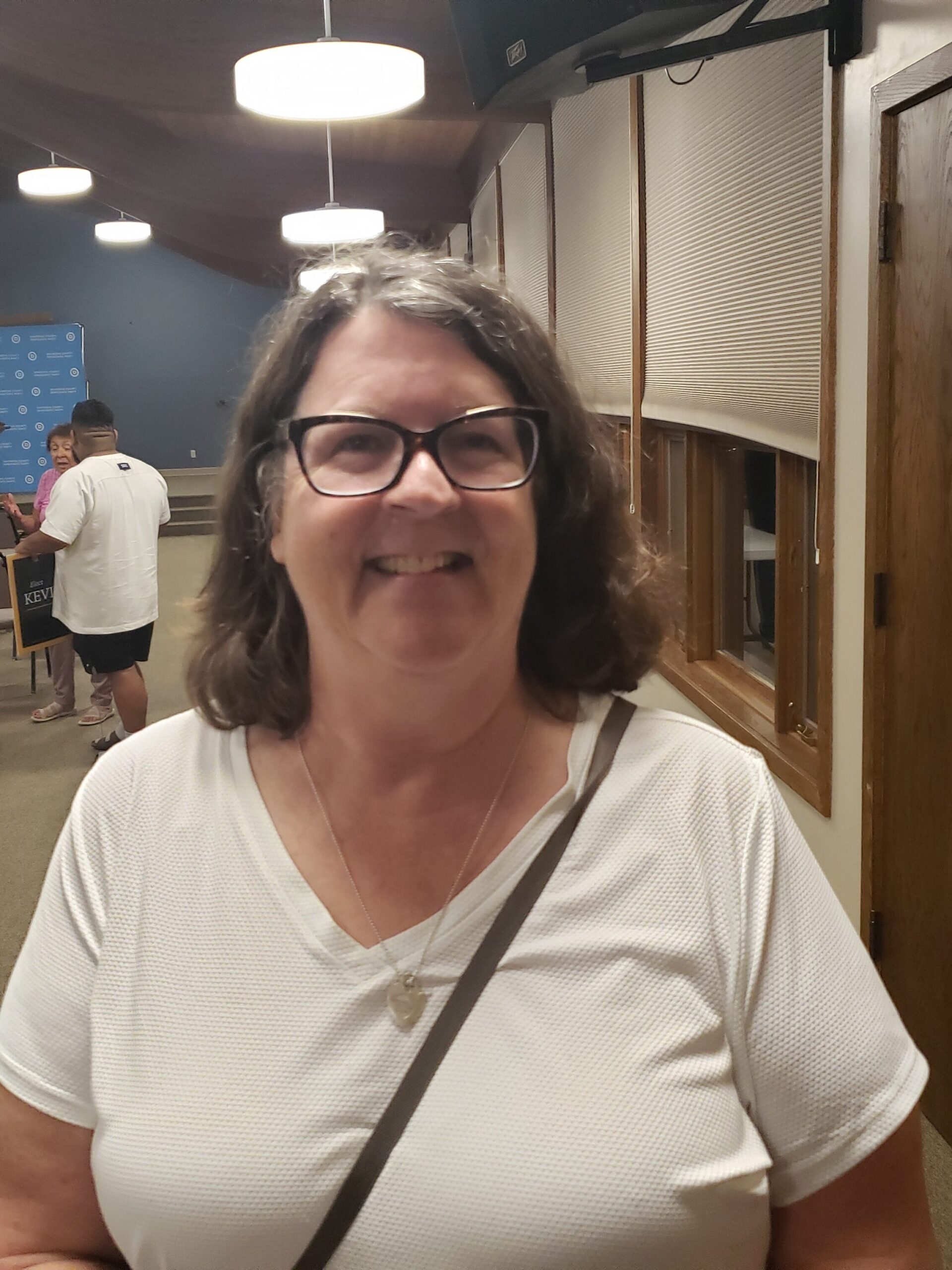
This is easier said than done, of course. If a small percentage of suburban Republicans who were uneasy with Trump in his first two elections come home to the GOP in November, it could be enough to swing the election in his favor. Such is the nature of Wisconsin politics and its razor-thin margins.
Jensen, the ex-Republican speaker, can even imagine a brighter future for the GOP, where they figure out the right “constellation of issues” that brings traditional Republican voters back to the fold, so Waukesha County can run up the score the way it did when he was a legislator.
“If we could do that, then Wisconsin wouldn’t be a toss-up state with races won by 1 percent by either team,” Jensen said. “It would lean Republican if we were able to win back the suburbs.”
Mareno, the county Democratic chair, sees another path. He said it’s taken years for Democrats to make inroads in the suburbs, “just telling people that we were reasonable, rational adults.” They’re reaching out to people this year who’ve voted Republican for possibly most of their lives, he said, and trying to win their votes for the first time ever.
“Yes, the next election is really important,” Mareno said. “But in Waukesha, we need to be thinking about the next five elections. Because that’s where we’re heading.”
Wisconsin Public Radio, © Copyright 2025, Board of Regents of the University of Wisconsin System and Wisconsin Educational Communications Board.

